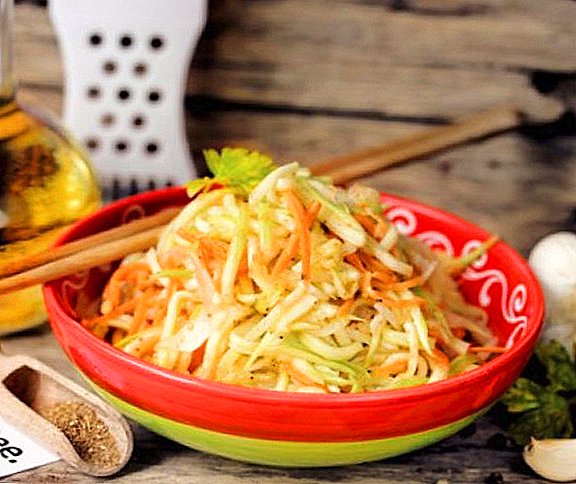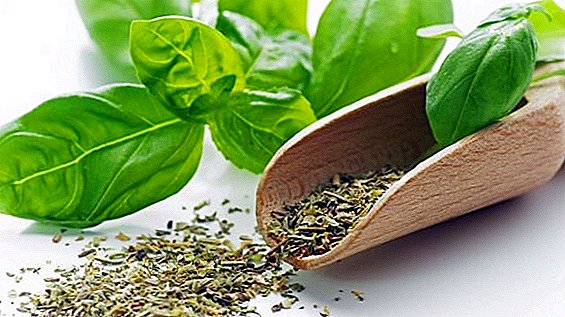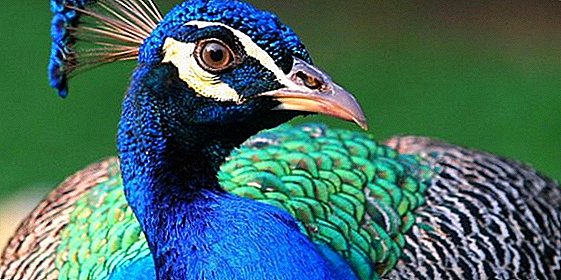 This fruit in the distance is easily confused with peach. Having heard its name for the first time, many think that this is some sort of exotic or hybrid. Meanwhile, nectarine is a separate species, and it makes sense to find out how it is useful for our body.
This fruit in the distance is easily confused with peach. Having heard its name for the first time, many think that this is some sort of exotic or hybrid. Meanwhile, nectarine is a separate species, and it makes sense to find out how it is useful for our body.
Calorie and nutritional value
"Bald Peach" (another nectarine name) refers to low-calorie foods.  Having eaten 100 g of sweet fruit, you get only 48 kcal. The same amount accounts for 11.8 g of carbohydrates and only 0.2 g of fat.
Having eaten 100 g of sweet fruit, you get only 48 kcal. The same amount accounts for 11.8 g of carbohydrates and only 0.2 g of fat.
If you make it nectar, then the value will be slightly higher - 53 kcal at 12.8 g carbohydrates, with no fat at all! Proteins in both cases - by 0.9 and 0.4 g respectively. The rest of the content is mainly water (not less than 85%) and dietary fiber.
With 100 grams of nectarine juice, the calories come out even less: 37 calories in the absence of fat and 8.6 grams of carbohydrates, protein is only 0.4 grams, an excellent option for dieters.
Important! You should not keep a fruit in the refrigerator for a long time: after 5 days of such storage, its useful properties are lost.
The chemical composition of the healthy fruit
Nectarine is rich in various minerals, acids and vitamins, and this is its obvious benefit. 
Per 100 g of fruit accounted for:
- 201 mg of potassium;
- 26 mg of phosphorus;
- 9 mg of magnesium;
- 6 mg of calcium.
Vitamins and acids in nectarine not less than twenty. The most noticeable are vitamins of groups A, B, C, E, K and organic acids.
Useful qualities are also in such types of fruit trees as: apple, zizifus, apricot, plum, cherry plum, pear, felt cherry.Unlike peach, nectarine contains the so-called bioflanoidy (the main of which is beta-carotene). It is to these elements that he owes his unusual color, combining red, pink and orange colors.
How is nectarine useful?
With such a composition of fruit can be called a real fount of health.
Did you know? The homeland of the fruit is East Asia. From there, he "migrated" to the warm countries of the Mediterranean region - Tunisia, Greece, Italy.
The list of its useful qualities is impressive:
- helps to remove toxins and wastes from the body;
- strengthens the heart muscle;
- due to the soft action it normalizes the work of the stomach;
- increases hemoglobin level;
- useful for hypertension;
- moisturizes the skin;
- regulates metabolic processes in the body;
- stabilizes the nervous system.
 It is not surprising that with such a set of qualities nectarine is actively used as part of a healthy diet, and to combat diseases and overweight.
It is not surprising that with such a set of qualities nectarine is actively used as part of a healthy diet, and to combat diseases and overweight.Features of use
Let's see for what purposes you can use this fruit.
In cosmetology
Nectarine exhibits its outstanding properties in the field of cosmetology. You can cope with the problem of dry skin simply by putting a few slices on a clean face.
The dermis layer remains moist for a long time, and with regular use the skin is always moist. Carotene gives it a healthy ruddy shade.  Masks on such a basis are even more effective: having a toning effect, they saturate the area with vitamins and help fight wrinkles, smoothing them out.
Masks on such a basis are even more effective: having a toning effect, they saturate the area with vitamins and help fight wrinkles, smoothing them out.
Important! When choosing a fruit, look at its integrity: nectarine should be perfect (no dents). Heaped and compressed fruits are no longer suitable for food.Here is an example of such a composition: the pulp is mixed with 1 tablespoon of starch and ½ teaspoon of pumpkin oil. This "mix" is applied on the face for 3-5 minutes, then washed off with warm water. The effect is fixed using a mask twice a week.
For cosmetic purposes, they also use dogwood, pineapple, strawberry, watermelon, apricot, cherry.
In nutrition
Due to its low calorie content, nectarine in any form is found in almost all dietary menus.
Add to this an excellent taste along with the ability to maintain a feeling of satiety for a long time - you get a good solution for those who struggle with every extra kilogram.  If you eat fruits regularly in small quantities (1-2 per day), then you can clean your body well during the week without using any chemicals and tablets.
If you eat fruits regularly in small quantities (1-2 per day), then you can clean your body well during the week without using any chemicals and tablets.
In cooking
You can eat nectarine separately or as an element of salads, desserts and nectars. Having prepared juice or jam for the winter, you can please yourself with a “piece of summer” in the cold.
As a filling, this is a great addition to the usual cake recipes. Even after heat treatment, most of the useful elements with which nectarine is so rich go nowhere.  When baking meat in the oven or on the grill, try putting a couple of slices - the finished dish will be even more tender (the meat will absorb the juice). The only thing - fruit can not be mixed with dairy products in any form.
When baking meat in the oven or on the grill, try putting a couple of slices - the finished dish will be even more tender (the meat will absorb the juice). The only thing - fruit can not be mixed with dairy products in any form.
In cooking, wild garlic, celery, cilantro, nutmeg, basil, cardamom, saffron, loquat, plum, ginger, rosemary, thyme, and hyssop are popular.
Can nectarine be pregnant
During pregnancy, the body of the future mother sometimes begins to fail, and this fruit helps to balance the overall condition of the woman in labor.
Fetal development is often accompanied by constipation. Nectarine juice helps, 100 grams of which, 20 minutes before meals, gradually normalize the stool. The other extreme - diarrhea, is also eliminated by taking the juice: ½ cup per day adjust the work of the intestine.  Hormonal failure occurs in dry skin (we talked about masks a little higher). In the later periods, especially in the third trimester, many women in labor increase their pressure.
Hormonal failure occurs in dry skin (we talked about masks a little higher). In the later periods, especially in the third trimester, many women in labor increase their pressure.
It can be normalized using nectarine: about half an hour before a meal, you need to eat one fruit - and your health will improve, and the diuretic properties will have a positive effect on a stressed body.
Important! If the seller opened the fruit, and there was a broken bone, you cannot buy it. This is a kind of reaction to the large amount of pesticides that trees were treated with. In addition, the bone itself is poisonous.But there are contraindications. Women who have a predisposition to diabetes and allergies, from its use is better to refuse. Sugar in the pulp a lot, and it can further weaken the body. If there are no such problems, it is still better to comply with the measure.

Harmful properties of the product
Of the obvious contraindications can be called except diabetes. Of particular danger is the bone - it contains a strong poison (hydrocyanic acid).
As for food intake, it is better to exclude nectarine from the evening menu. The fact is that the watery fruit will contribute to night urination.  During the period of breastfeeding from such sweetness refrain. For babies under 7 months old, it is completely contraindicated.
During the period of breastfeeding from such sweetness refrain. For babies under 7 months old, it is completely contraindicated.
Did you know? According to a rigorous scientific classification, peaches are not attributed to the usual section of fruit, but to the breed of Almond (Rosaceae family). Look at the bone - the resemblance to an almond tree in this regard is obvious.In pursuit of benefits, we should not forget about the sense of proportion: 1-2 pieces per day will be enough, but 4-5 or more nectarines per day automatically put a healthy person into a risk zone (blood sugar rises, problems with intestines begin, the stomach swells up ).
We figured out what is nectarine, what is its benefit. Its composition can be a weighty argument in the struggle for beauty and healing.












